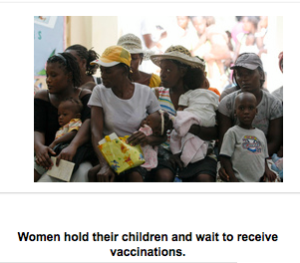 Dallas, TX (PRWEB) September 15, 2010
Dallas, TX (PRWEB) September 15, 2010
MediSend International Plans Significant Role in Reconstruction of Haiti’s Healthcare System
Haiti is still in desperate need of basic medical and surgical supplies, and biomedical equipment and, perhaps even more important, professionally trained technicians and engineers to repair and maintain the lifesaving diagnostic and treatment equipment. MediSend is prepared to provide both.
More than one million people are still living in makeshift tent cities in Haiti and the Atlantic hurricane season is threatening the impoverished country with yet another disaster. Many of the organizations providing medical assistance that went to Haiti immediately following the quake are now gone. With widespread malnutrition, respiratory and diarrheal diseases, the sick and injured suffer in long, hot lines and exhausting conditions to see a nurse or doctor at one of the few functioning hospitals or clinics.
MediSend representatives recently spent a week in Haiti with fellow members of the Partnership for Quality Medical Donations (PQMD), visiting program sites and meeting with field staff and Haitian healthcare workers to discuss progress since the earthquake and to help develop a sustainable plan for the reconstruction of Haiti’s shattered healthcare system. The country is still in desperate need of basic medical and surgical supplies, and biomedical equipment and, perhaps even more important, professionally trained technicians and engineers to repair and maintain the lifesaving diagnostic and treatment equipment. MediSend is prepared to provide both.
MediSend can help insure that Haiti’s redeveloping healthcare plan is successful by implementing a national program to professionally train and educate biomedical equipment repair technicians, while at the same time supporting ongoing emergency relief with shipments of medical supplies and biomedical equipment. Grace Children’s Hospital, severely damaged by the earthquake, is one of the hospitals that has appealed to MediSend for help. The hospital is considered an authority in the treatment of Tuberculosis and cares for thousands of Haitian children annually and now, also adults, due to the lack of functioning hospitals.
MediSend is the global leader in strengthening developing country hospitals through professional education and training in biomedical technologies, the design and installation of biomedical test and repair labs, and the distribution of critical medical supplies and equipment. MediSend has trained more than sixty US BMET level biomedical repair technicians and engineers for hospitals in countries such as Angola, Sierra Leone, Kazakhstan, the Democratic Republic of Congo, Chad, Uganda, Cameroon, India, Equatorial Guinea, and Nigeria. Many are the first such trained professionals in their countries.
While in Haiti, Tauane Araujo, MediSend’s International Aid Manager, spent several days interviewing and testing potential Haitian candidates for MediSend’s 2011 Biomedical Repair Training Programs. “The overall situation in Haiti is still chaotic after six months of aid pouring in from a number of organizations throughout the world. Hospitals continue to lack the capacity to perform complex surgeries and some critically essential healthcare services,” said Ms. Araujo. “The only way that the situation in Haiti can actually improve is by empowering the Haitians themselves. Through professional education and training in biomedical technologies, MediSend can help Haitian hospitals build national capacity and deliver a much higher standard of care.”
MediSend joined other PQMD members in Port Au Prince to explore long-term and sustainable programs that would benefit from PQMD’s unique alliance of non-profit and corporate healthcare organizations.